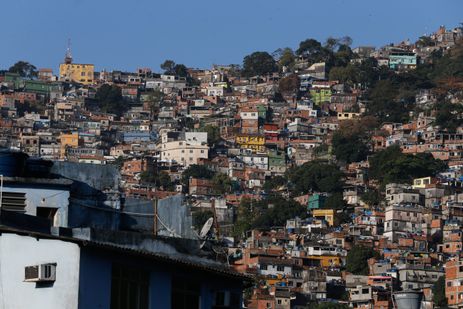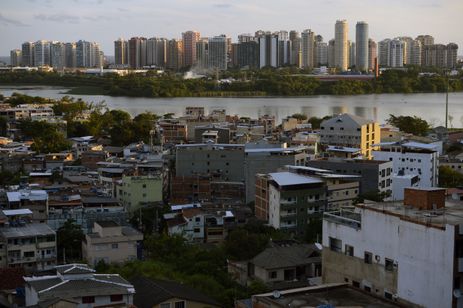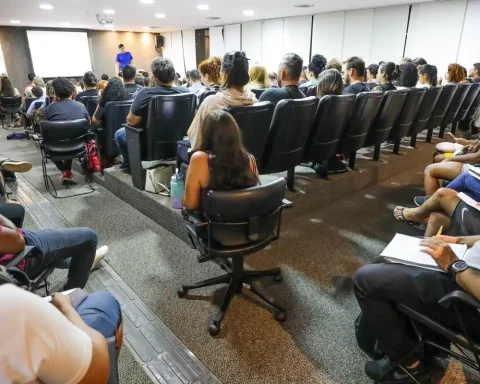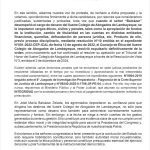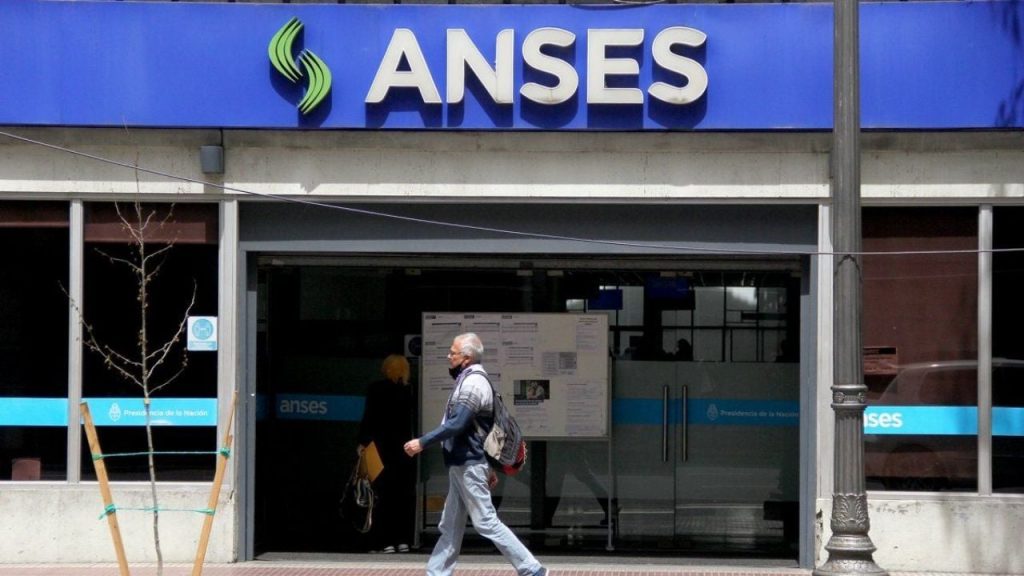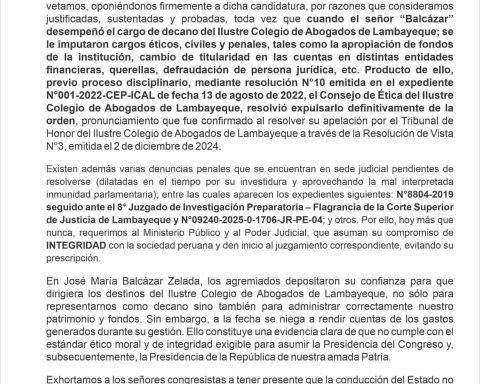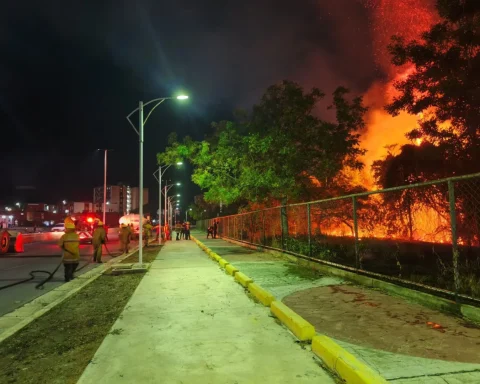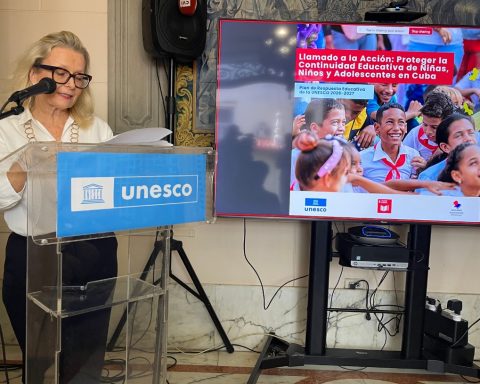While tending to her small vegetable garden, where she grows food for herself, Elisangela Jesus da Silva, 45, has one worry on her mind: the fear of being evicted. Janja, as the urban farmer is known, has lived for eight years in the Aliança em Cristo Occupation, organized by the Homeless Workers’ Movement (MTST), in the Jiquiá neighborhood, west of Recife. She lives with her partner – an auto electrician – and two children, ages 4 and 5.

Financial difficulties are the reason that led Janja to find in occupation the answer to a fundamental need of any person: housing.
“I used to pay rent, but it was very difficult, because I had to pay rent, electricity, water, medicine, food… We went through a lot of hardship, a lot of difficulties”, he recalls in a conversation with Brazil Agency.
Although the family’s finances are less strained by living in the occupation, Janja points to the lack of land regularization as the biggest problem at the moment. “We live here, but nothing is legal,” she says, mentioning that it was the occupants themselves who built a water pipe system.
“The biggest difficulty is regularization, we want to be regularized and have peace of mind so that, in the future, we don’t face any threat of eviction,” says the farmer.
She reports having already suffered an episode of eviction. “A so-called owner appeared, claiming to be the owner of the area, and expelled us.”
The city of Recife informed the Brazil Agency that land regularization is carried out in areas classified as special zones of social interest (Zeis), and that the Aliança em Cristo occupation is located outside these areas.
“In addition, it is located in an Environmental Preservation Area (APA), between the Jiquiá and Tejipió rivers, which makes urban regularization in the area impossible,” he said.
When asked if there was any action plan aimed at the situation of the local residents, the city government did not respond by the time this report was completed.
Elections and the right to housing
The right to housing is one of the issues at stake on October 6, the date of the first round of municipal elections. More than 155.9 million voters will go to the polls in 5,569 cities to vote. choose mayors and councilors.
The right to housing claimed by Janja is a guarantee for all Brazilians, as stated in Article 6 of the Federal Constitution. Article 23, in turn, determines that it is a common competence of the Union, the states, the Federal District and the municipalities to “promote housing construction programs and the improvement of housing and basic sanitation conditions”.
Housing deficit
Janja is part of the group of Brazilians who experience a housing deficit, estimated at 6.2 million households, according to a survey carried out in 2022 by the João Pinheiro Foundation (FPJ), a research and teaching institution linked to the State Secretariat of Planning and Management of Minas Gerais.
The survey, carried out in partnership with the National Housing Secretariat of the Ministry of Cities, considers housing deficit situations such as the need to replace or even build housing due to precarious structures, excessive spending on rent and families who need to cohabit properties.
The study was conducted using data from the Continuous National Household Sample Survey (Pnad), from the Brazilian Institute of Geography and Statistics (IBGE), and from the Single Registry for Social Programs (CadÚnico) of the federal government.
The FPJ also estimated that 26.5 million households, around 42% of the total at the time of the survey, presented at least some type of inadequacy, whether a lack of urban infrastructure (electricity, water supply, sewage and garbage collection); related to the building (lack of exclusive bathroom, number of rooms serving as bedrooms and water storage, inadequate flooring and roofing) and urban land inadequacy.
Evictions
Furthermore, the Zero Evictions Campaign, a national articulation formed by more than 175 organizations, entities, social movements and collectives, estimates that there are 1.5 million people in the country affected by eviction or forced removal.
The social organization Habitat Brasil is one of the institutions that helped map families threatened with eviction, like Janja’s, or already evicted. The organization has been operating in Brazil for 30 years.
One of the priority areas of action is access to decent housing. An improvement program has benefited more than 2,600 homes, and through the government program Minha Casa, Minha Vida Entidades (granting subsidized financing to families organized through private non-profit entities), almost 7,600 homes have been built. The two fronts of action have benefited 51,000 people.
Municipal entities
In this scenario, with just a few days to go until the municipal elections, the executive director of Habitat Brasil, Socorro Leite, reinforces that the municipal government has an essential role in guaranteeing the right to housing.
“It is responsible for creating laws that regulate the use and occupation of land in the city. Furthermore, it is at the municipal level that areas of interest that can be predominantly used for social housing are defined,” lists the executive director.
According to the activist, it is up to the municipal authorities to prioritize areas of social interest to produce new housing and ensure that the social function of property is fulfilled.
She also emphasizes the role of the coordinator in obtaining resources. “It is essential to seek new sources of resources, not just relying on our own resources, which are often limited and disputed with other equally important areas. Seeking financing and counterparts from the state and federal governments is essential,” she says.
However, Socorro Leite warns that municipalities cannot be held hostage by federal housing programs alone. “We saw this in the previous federal administration, which did not allocate resources for social housing, paralyzing this policy in many municipalities,” she recalls.
The activist points out that land regularization is a policy that should be prioritized. “Not having regularized land tenure means being, in a way, at risk of eviction,” she points out.
Urban planning specialist Paula Menezes Salles de Miranda, professor in the Department of Architecture and Urban Planning at the Higher School of Industrial Design (Esdi) at the State University of Rio de Janeiro (Uerj), highlights the role of councilors in the housing issue.
“Council members can create laws related to housing provision, sanitation, transportation. They can also allocate resources, from municipal parliamentary amendments, to specific projects, such as housing projects, technical consultancies that develop projects for vulnerable populations, social movements fighting for housing,” he told Brazil Agency.
>> Read the interview with expert Paula Miranda to Agência Brasil
Master plan
A central element for housing in cities is the master plan, a law with guidelines for how the city should be occupied and expanded. As it is a law, it reflects the importance of the city councils, which approve the text.
Paula Miranda, from Uerj, contextualizes that the master plan is provided for in the City Statute (Law No. 10,257/2001), a law that regulates articles 182 and 183 of the Federal Constitution, establishing general guidelines for urban policy. “The City Statute requires all municipalities with more than 20,000 inhabitants to create a master plan, which must be renewed every ten years,” it explains.
The director of Habitat Brasil, Socorro Leite, argues that the document should have specific rules “to regularize the situation in these regions and guarantee spaces for the construction of housing, located in well-structured areas with adequate infrastructure”.
Socorro Leite emphasizes that urban centers need to receive special attention from the master plan, “applying instruments that ensure the social function of property, such as the allocation of abandoned properties for the production of new housing”.
Real estate speculation
Another function of master plans, adds the activist, is to combat real estate speculation, that is, the practice of buying properties and land with the main expectation of reselling them at a profit, without any social use. “The municipality cannot be at the mercy of private interests,” she emphasizes.
In her view, master plans cannot only benefit the real estate market. “The plan has the power to establish rules that can make an area more or less attractive to the real estate market, interfering in this dynamic and reserving spaces for social housing.”
Urban planner Paula Miranda cites as one of these rules the possibility of a progressive Urban Property and Land Tax (IPTU) (with a gradual increase).
“The land must fulfill a social function, so if the municipality has provided for this instrument, the public authority can notify the owner to present a construction project on the land or to occupy an idle building. If the obligation is not fulfilled, progressive IPTU may be charged until compliance,” explains Paula Miranda.
The architecture and urban planning professor, however, regrets that sometimes specific laws are not even created to regulate and combat real estate speculation.
“Despite the possibility of foreseeing, in master plans, a series of instruments that can exercise control, to a certain extent, over real estate speculation, these are often not applied. Sometimes, specific laws for regulation are not even created. In some cases, the public authorities fail to act due to a lack of interest in the matter, or due to coordination with private sectors”, assesses Paula.



